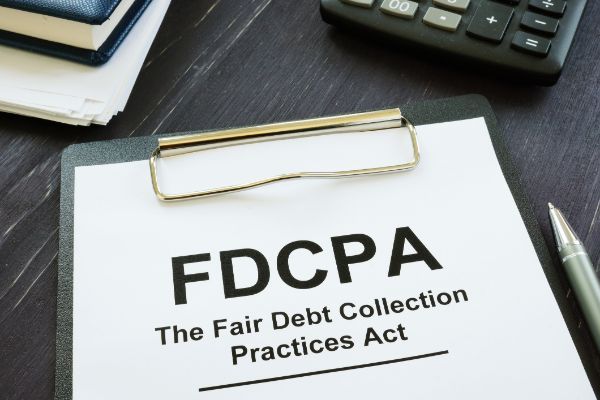Whether you’ve received a letter in the mail or a phone call from an unknown number, dealing with debt collectors can cause a lot of stress — and you may not know how best to respond.
Debt collectors are legally obligated to follow certain rules when it comes to collecting debt, and there are ways you can handle outstanding debt from the original creditor or a third-party company collecting on their behalf. Make sure you know your rights and how to handle debt collectors if they contact you.
How debt collectors get your information
If a company you’ve never heard of is contacting you to pay a debt, you might not think it’s yours. But consider that the company that’s contacting you isn’t necessarily the company you had an original debt with. It could’ve gotten your address or phone number from a few different places, like the original creditor, your credit report or an internet search.
If a debt collector got your information from the original creditor, they’ll have your personal details, like where you live, the amount owed and the company you originally owed money to. If you’re dealing with legitimate debt collectors, they should have no problem sharing information related to your debt.
How to deal with debt collectors
If you’re dealing with a third-party debt collector, there are a few steps you can take to handle the situation.
- Don’t ignore them. Debt collectors will continue to contact you until a debt is paid. Ignoring a debt collector when a debt is yours can cause further damage to your credit score and report.
- Find out debt information. Find out who the original creditor was, as well as the original amount. This can help you make sure that the debt is yours. Find out as much as you can, including how old the debt is. There’s a chance that the statute of limitations has expired, meaning the debt collector can no longer sue you to recoup the debt.
- Get it in writing. Legitimate debt collectors are required to send you a letter in the mail detailing your outstanding debt, like who the original creditor is and how much you owe. You should also get information about how to dispute the debt, which can come in handy if the debt in question isn’t yours.
- Don’t give personal details over the phone. Regardless of if you can pay the debt or not, avoid excessive talking. Don’t share anything over the phone, including if you can pay and how you plan to. Instead, request a letter with the original debt information.
- Try settling or negotiating. After you’ve received your letter and can verify that the debt is yours, see if the debt collector will settle for a portion of the cost if you pay upfront. If they still want the full amount due, ask if you can set up a payment plan.
Understand your rights when dealing with debt collectors
Legitimate debt collectors exist, so it’s important to make sure that you can tell when they’re real and when they’re fake. You have rights when dealing with debt collectors. Debt collectors must abide by the following rules:
- They have restricted contact. Debt collectors are only allowed to call you between 8 a.m. and 9 p.m., and they’re not allowed to call you at work. If you get a call outside of these hours, you might be dealing with a debt collection scam.
- You can request a callback number. If a debt collection agency is legitimate, it should have no problem providing you with company information, including a callback number. Make sure you write down as much information about the company as possible, including its name and address, if you get it. This is important to see if it’s legally operating in your state.
- They can’t lie or harass you. Debt collectors can’t make you pay more than you owe or threaten you with arrest, jail time, property liens or wage garnishment if you don’t pay. Wage garnishment might be legal in your state, but your debt collector will need to take you to court first. If a debt collector is posing as police and threatens to arrest you, there’s a chance that it’s a scam.
How to spot a debt collection scam
- Watch your mailbox. A validation letter is one way to make sure that you’re dealing with a legitimate debt collector. Check online to see if the company legally operates in your state. If you’ve just gotten a phone call from an alleged debt collector, request a validation letter before making any attempt to pay off the debt in question.
- Verify your details. If the company is legit and the debt is legit, there’s a chance that it might not be yours. Request personal details about the debt, including the original creditor and the amount. While the debt might be real, it could be for someone else who shares your name, or it might be from an act of identity theft.
- Make sure you can pay your way. If the person on the phone claims that you can only pay through a wire transfer or a prepaid debit card, you might be dealing with a scammer. Even though debt collection isn’t the most ideal situation, most companies will work with you to get a debt paid through terms you’re comfortable with. You should also try negotiating — many debt collectors are willing to create a plan that helps you pay.

